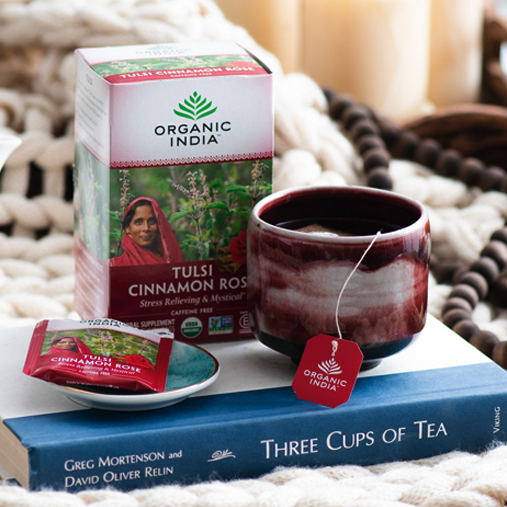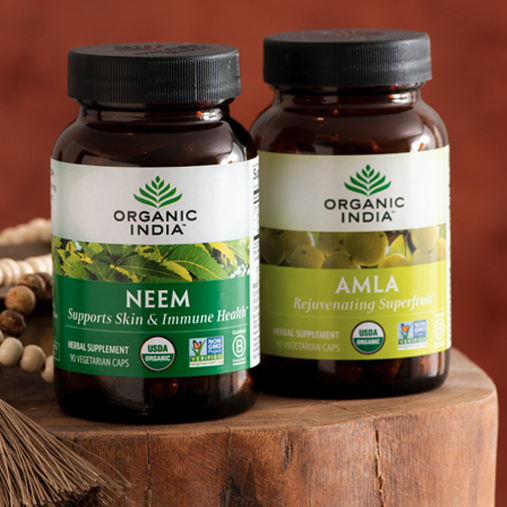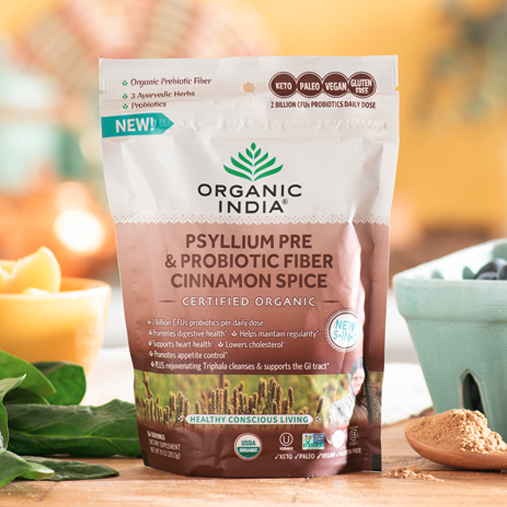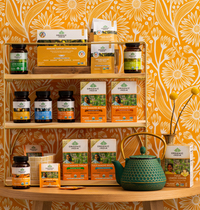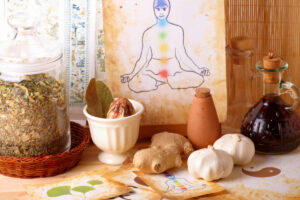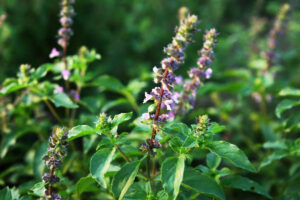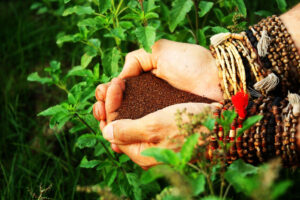In a quiet village in northern India, an elder Ayurvedic practitioner wanders through the garden tending his herbs. He stops at a small plant with broad green leaves and dainty, lavender flowers: Punarnava. Also called Boerhavia, he knows that Punarnava benefits are plentiful.
Some would consider this plant a weed; after all, it grows prolifically throughout India, especially in the rainy season. However, he knows this humble herb holds the power to restore what modern life often erodes: energy, clarity and balance. Punarnava is known to Ayurvedic practitioners and locals as the “renewer.”
Today, Punarnava is gaining recognition in the West for its gentle yet powerful support for the kidneys, liver, and overall metabolic balance.*
Whether you’re seeking to gently detox, support kidney and liver health, or restore vitality, this Indian super herb offers deep and lasting wellness—naturally.*
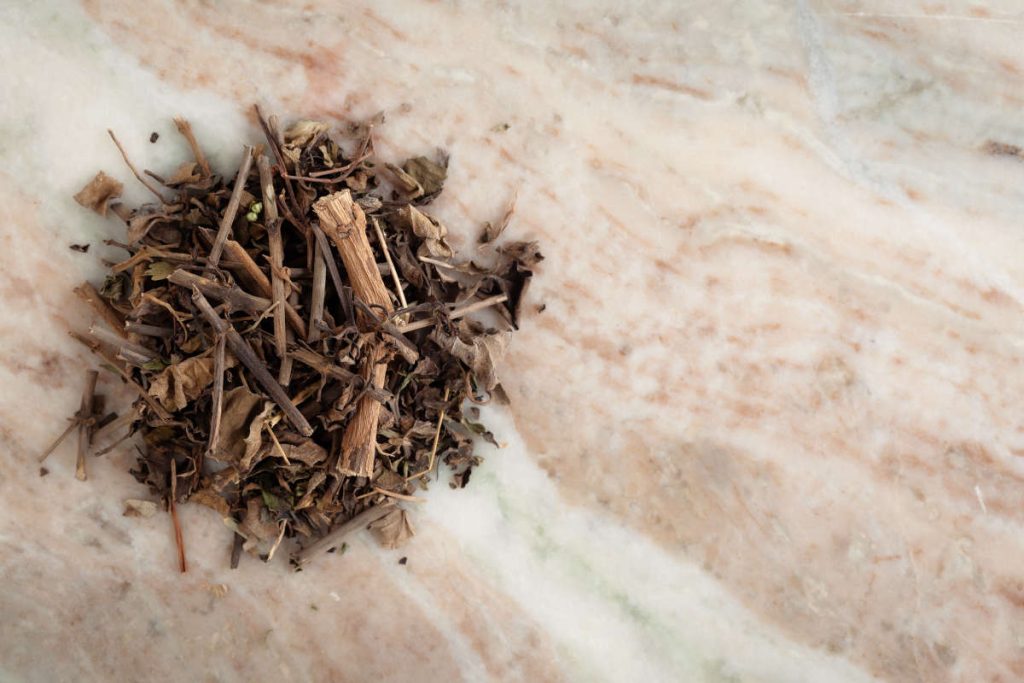
Contents
What Is Punarnava?
Punarnava is a leafy, flowering plant that thrives in India’s tropical and subtropical regions. Its name translates to “renewer” or “one that rejuvenates the body”—a fitting title for a botanical that has long been used to revive sluggish systems and restore internal balance.*
Traditionally, Ayurvedic practitioners used the roots and leaves of Punarnava for a wide range of purposes—from supporting healthy fluid levels and a healthy inflammatory response to promoting liver health and digestive comfort.*
With its adaptogenic and naturally cleansing properties, Punarnava is now considered a go-to herb for anyone seeking to support detoxification and vitality—gently, but effectively.*
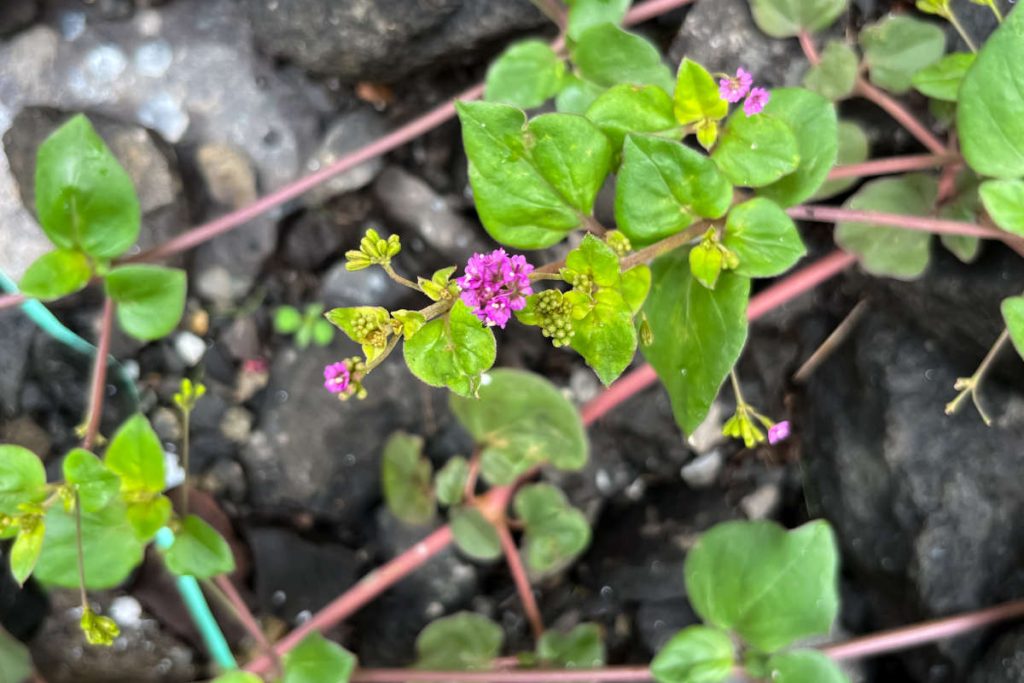
Punarnava in English
In English, Punarnava is most commonly referred to by its botanical name: Boerhavia diffusa. You may also hear it called “Spreading Hogweed,” though it’s far more respected in herbal traditions than the humble name suggests.
In Western herbalism, Punarnava is prized for its support of a healthy inflammatory response and hepatoprotective properties—meaning it can help support kidney and liver function, calm internal heat, and assist in removing excess fluid from the body.* It’s often used for gentle cleansing protocols and is valued for its ability to bring the body back into balance without creating depletion.
Punarnava in Ayurveda
Punarnava has a long and revered history in Ayurvedic medicine, where it’s considered a “rasayana” herb, meaning it helps rejuvenate the body. Its qualities are described as bitter, pungent, and slightly sweet, and it is thought to balance the Kapha and Vata doshas, while increasing Pitta in a beneficial way.
It is commonly used in Ayurvedic practice for:
- Supporting urinary health and fluid balance*
- Aiding in liver detoxification*
- Supporting a healthy inflammatory response*
- Encouraging healthy digestion and elimination*
- Rebuilding strength and vital energy (ojas) after illness or exhaustion*
Punarnava is often used in combination with other synergistic herbs for full-body rejuvenation and organ support. Ancient healers often prescribed Punarnava preparations during the monsoon season to protect against fluid imbalances that were common at that time of year.*
Ayurveda texts like the Charaka Samhita and the Sushruta Samhita reference Punarnava for its role in revitalizing tissues and enhancing longevity. Today, modern Ayurvedic clinics continue this seasonal tradition, offering Punarnava-based tonics to help the body adapt and flourish through environmental and lifestyle changes.
How to Take Punarnava
Punarnava can be taken in several traditional forms, including herbal teas, powdered root, and capsules. While Ayurvedic practitioners may tailor specific formulations for individual needs, modern herbal supplements offer convenient, balanced options for daily wellness.
If you prefer a traditional approach (and if you’re reading this, you most likely do!) Punarnava tea made from the dried root or leaves can be an excellent daily ritual. Simply steep one teaspoon of dried Punarnava in hot water for ten to fifteen minutes, strain, and sip slowly.
This method allows you to connect with the plant’s earthy energy and experience punarnava benefits gently over time. For those seeking faster results or more targeted support, capsules and tinctures provide a concentrated and consistent dose that fits easily into your busy lifestyle.
At ORGANIC INDIA, we’ve carefully combined Punarnava root with two other potent herbs—Katuki (Picrorhiza kurroa) and Bhumyamalaki (Phyllanthus niruri)—to create our masterfully formulated Liver Kidney supplement.*
This synergistic blend is designed to:
- Support natural detox pathways*
- Nourish and protect liver and kidney tissues*
- Encourage healthy bile flow and elimination*
- Balance metabolism and energy*
You can take Liver Kidney capsules daily with warm water as part of your morning or evening wellness routine.

How Does Punarnava Work?
Punarnava supports the body’s natural ability to cleanse and regulate fluid balance. Scientifically, the herb contains a variety of bioactive compounds, including alkaloids, flavonoids, lignans, and steroids—all of which contribute to its antioxidant and diuretic actions.*
It helps stimulate renal function, eliminating toxins and excess water through urine, which can reduce bloating, improve clarity, and support overall lightness in the body.*
Additionally, its hepatoprotective (liver-protecting) properties work to shield liver cells, making it an ideal herb during or after times of stress, poor diet, or exposure to environmental toxins.*
What Are the Side Effects of Punarnava?
Punarnava is generally well-tolerated and has been safely used in traditional medicine for generations. However, because it has natural diuretic effects, it may increase urination or interact with other diuretic medicines.
It’s best to:
- Consult your healthcare provider before using Punarnava if you’re pregnant, breastfeeding, or on medications.
- Stay hydrated while taking it to maintain a healthy electrolyte balance.
- Start with the recommended dosage and observe how your body responds.
When used as part of a well-balanced herbal formula like Liver Kidney, Punarnava root offers powerful support with minimal risk.
Top 7 Punarnava Benefits
If you’re looking for natural ways to rejuvenate your body and support inner clarity, Punarnava offers an impressive range of benefits. Let’s take a look at the most celebrated:
1 Cleansing and Detox
Punarnava promotes gentle, ongoing detoxification by helping the kidneys and liver eliminate waste efficiently. It supports fluid balance, encourages healthy urination, and helps reduce water retention and bloating.*
2 Digestive Support
Thanks to its bitter and carminative (flatulence-relieving) qualities, Punarnava can soothe the digestive system, reduce gas, and support healthy elimination. It encourages liver function, which is crucial for fat digestion and nutrient absorption.*
3 Vital Organ Support
Punarnava is a known tonic for the liver and kidneys, helping to protect, restore, and maintain the health of these essential organs. It supports enzyme activity, guards against the effects of toxins, and supports a healthy inflammatory response.*
4 Metabolic Support
By supporting proper elimination and organ function, Punarnava helps balance the metabolic system. This can lead to more stable energy levels, improved digestion, and a natural sense of lightness and clarity in body and mind.*
5 Healthy Inflammatory Response and Joint Comfort
Punarnava’s properties make it a useful herb for joint and tissue health. In traditional use, it has been applied to ease the muscles and joints, especially when related to water retention or sluggish detoxification.*
6 Menstrual and Reproductive Health
Some Ayurvedic traditions use Punarnava to support reproductive system balance, particularly in women experiencing irregular cycles or discomfort related to fluid retention and hormonal shifts.*
7 Rejuvenation and Vitality
True to its name, Punarnava helps renew vitality and supports long-term wellness by gently strengthening the body’s internal systems. It can be an excellent ally during seasonal transitions, stress recovery, or intentional wellness resets.*
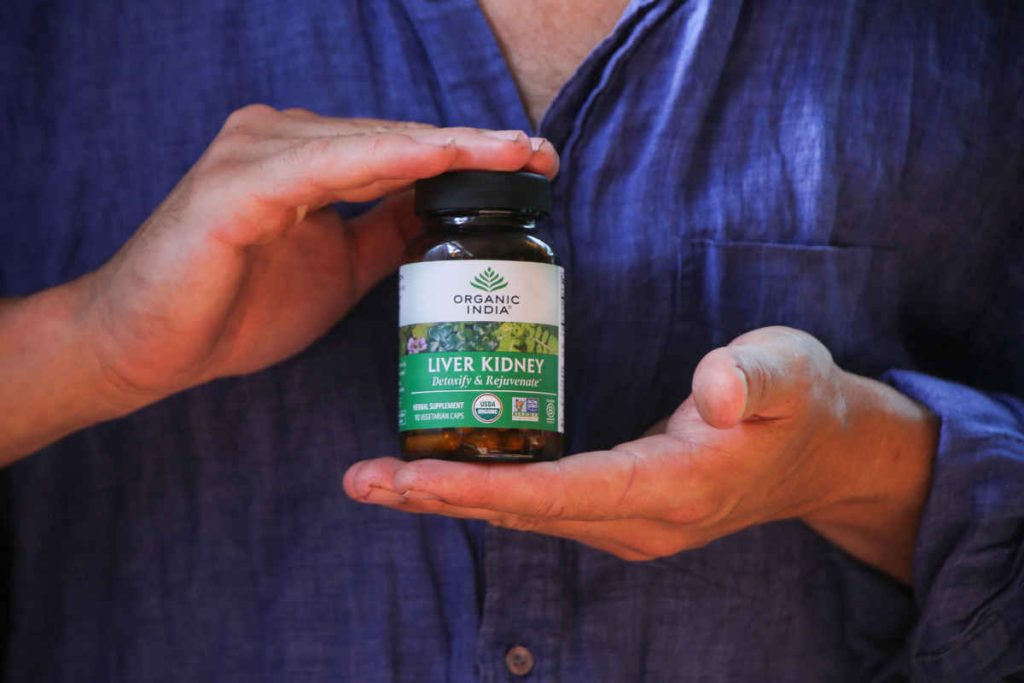
Renew from Within with ORGANIC INDIA’S Liver Kidney Supplement
Whether you’re navigating a seasonal shift, feeling energetically stagnant, or simply want to support your body’s natural cleansing rhythms, Punarnava offers gentle, effective support.
Incorporating Punarnava into your daily wellness practice can feel like a small ritual of self-care. Imagine starting your morning by honoring your body’s innate wisdom—giving it the tools it needs to detoxify, balance, and thrive naturally.
Over time, you may notice subtle shifts: clearer skin, lighter digestion, more stable energy, and a deeper connection to your internal rhythms. Punarnava benefits go beyond supporting the organs; it nourishes the spirit of renewal that lives within you.*
At ORGANIC INDIA, our Liver Kidney formula honors the synergy of traditional herbs, combining Punarnava root with Katuki and Bhumyamalaki for full-spectrum organ support. These herbs work in harmony to cleanse, nourish, and protect—restoring balance from the inside out.
Shop Liver Kidney today and experience the ancient wisdom of Ayurvedic cleansing—crafted with care, certified organic, and rooted in regenerative farming that honors both people and planet.

